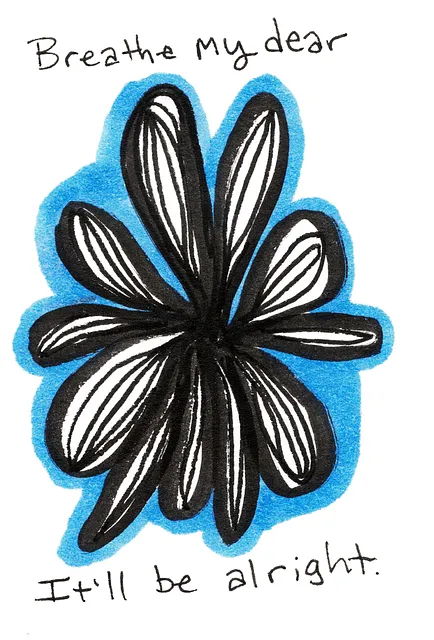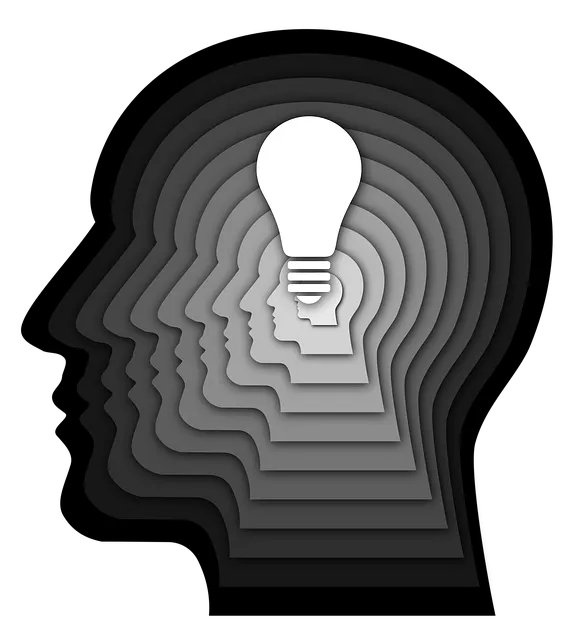Mental wellness apps are transforming access to support and resources in communities like Colorado Springs, where Kaiser provides vital inpatient mental health services. These apps offer personalized therapy, mood tracking, and 24/7 peer support through evidence-based practices, live chats with professionals, and community forums, aiming to destigmatize mental illness. By integrating elements from successful holistic treatment models like Kaiser's, these digital tools can revolutionize mental healthcare accessibility, addressing cultural sensitivities and burnout prevention while building on existing inpatient care infrastructure.
Mental wellness apps are gaining prominence as tools to support individual well-being. With a growing demand for accessible and personalized care, understanding the needs of users is crucial. This article explores the development of such apps, focusing on features essential for effectiveness. We delve into designing inpatient care solutions inspired by Kaiser’s model, specifically examining its impact in Colorado Springs. Additionally, it discusses challenges and opportunities in technology integration while anticipating future trends shaping mental health app development.
- Understanding the Need for Mental Wellness Apps
- Features and Components of Effective Apps
- Designing Inpatient Care Solutions: A Focus on Kaiser's Model
- Technology Integration Challenges and Opportunities in Colorado Springs
- Future Trends and Considerations for Mental Health App Development
Understanding the Need for Mental Wellness Apps

In today’s fast-paced world, mental wellness is a critical aspect of overall health that often goes overlooked. The demand for accessible and convenient solutions to support emotional well-being has never been higher, especially in communities like Colorado Springs where resources like Kaiser’s inpatient mental health services play a vital role. However, with growing awareness about Mental Health Awareness, many individuals seek more personalized and discrete ways to manage their mental health. This is where mental wellness apps step in as game-changers, offering tools for Coping Skills Development and Social Skills Training right at users’ fingertips.
These apps cater to a diverse range of needs, from mindfulness practices and meditation techniques to mood tracking and stress management strategies. By utilizing technology, they bridge the gap between traditional therapy and everyday life, ensuring that support is readily available 24/7. This is particularly beneficial for those who might face barriers to accessing in-person services, such as limited availability or financial constraints. With features tailored to individual preferences and situations, mental wellness apps have the potential to revolutionize how we approach and prioritize our mental health.
Features and Components of Effective Apps

Effective mental wellness apps are multifaceted tools that integrate various features to cater to diverse user needs. Key components include personalized therapy sessions, mood tracking tools, and access to a supportive community. These apps often incorporate evidence-based practices such as cognitive behavioral therapy (CBT) techniques to help users manage stress, anxiety, and other mental health conditions. Additionally, they may feature live chat with mental health professionals, mindfulness exercises, and educational resources on emotional well-being promotion techniques. By combining these elements, apps aim to reduce the stigma associated with mental illness through continuous engagement and support.
Community outreach program implementation is another crucial aspect, fostering connections among users facing similar challenges. This can include discussion forums, peer-to-peer support groups, and collaborative activities that encourage open conversations about mental health. Incorporating such features mirrors the supportive environments found in traditional therapy settings, but with the convenience and accessibility of digital platforms. For instance, apps may facilitate local meetups or virtual gatherings, providing users with opportunities to build meaningful relationships and gain a sense of belonging, which is essential for sustained recovery, especially when complemented by services offered by healthcare providers like Kaiser’s inpatient mental health facilities in Colorado Springs.
Designing Inpatient Care Solutions: A Focus on Kaiser's Model

When designing inpatient care solutions, especially in a region like Colorado Springs, looking into established models from leading healthcare institutions provides valuable insights. Kaiser’s approach to mental health treatment is noteworthy for its comprehensive and holistic nature. Their model prioritizes not only treating symptoms but also addressing the underlying causes of mental distress, focusing on burnout prevention strategies for healthcare providers. This includes integrating emotional well-being promotion techniques throughout the inpatient stay, ensuring patients receive not just medical care but a supportive environment conducive to healing.
By adopting elements of Kaiser’s successful program, developers can create robust mental wellness apps that go beyond mere symptom tracking. Incorporating features that cater to burnout prevention and emotional support aligns with current trends in mental wellness app development. Just as Kaiser has shown effectiveness in treating mental health conditions within an inpatient setting, a well-designed app can offer similar benefits on a digital platform, making tools for emotional well-being promotion accessible through the convenience of personal devices.
Technology Integration Challenges and Opportunities in Colorado Springs

In Colorado Springs, the integration of technology into mental health services presents both challenges and opportunities. One notable aspect is the availability of resources for those seeking inpatient mental health treatment, with Kaiser providing comprehensive care options. However, ensuring equal access to these digital tools and services remains a priority, especially considering disparities in technological literacy across various demographics. The city’s diverse population highlights the need for culturally sensitive mental healthcare practices, as technology must serve all communities effectively.
Opportunities lie in leveraging technology to expand Trauma Support Services and develop innovative Mental Wellness Coaching Programs. By addressing cultural sensitivity in mental healthcare practice, app developers can create inclusive solutions. For instance, incorporating user-friendly interfaces catering to different linguistic needs or designing apps that respect cultural traditions can significantly impact the effectiveness of mental wellness initiatives in Colorado Springs.
Future Trends and Considerations for Mental Health App Development

Mental wellness apps have emerged as powerful tools, addressing the growing need for accessible and personalized support. By integrating technology, these applications offer innovative solutions, such as those seen in Kaiser’s model, to improve patient care, especially in settings like Colorado Springs. As we look ahead, understanding the challenges and embracing future trends will be key to enhancing mental health app development, ensuring that resources like Kaiser’s inpatient care approach remain relevant and effective in meeting the diverse needs of individuals seeking support for their mental wellness.






